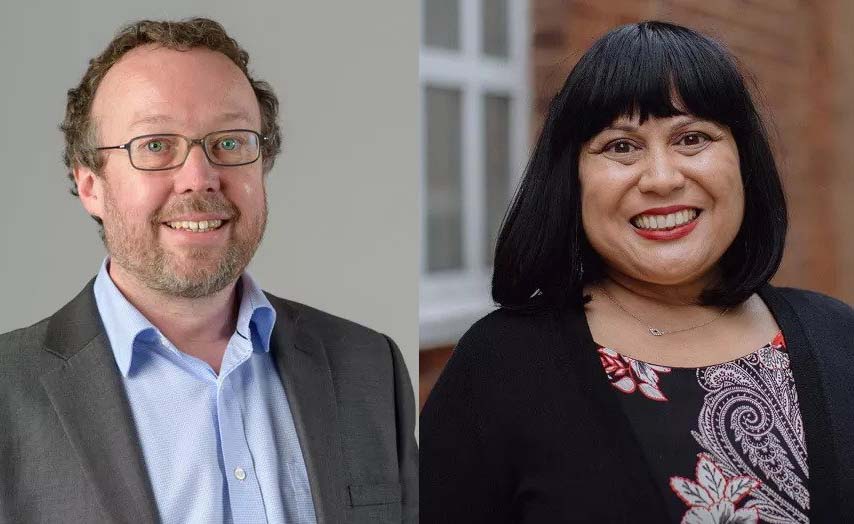Neelam Thapar, Head of Careers and Employability, interviews Steven Curtis, Course Leader: International Relations BA about a careers partnership project with the students on his course
Date: 29 November 2022
Neelam: Can you summarise the details of the partnership project with students?
Steven:
The School of Social Sciences and Professions with the Careers Team had met on a number of occasions to discuss ways in which we could improve the level of self-confidence our students had in regards to their career aspirations, especially our students of colour and those from less advantaged socio-economic backgrounds. The students on the course indicated that they wanted to hear from people of colour who were doing well in their work, so we created an opportunity to showcase the work of positive role models to show how other people of colour had forged ahead in their chosen careers.
One of these role models was Kishan Devani, BEM, a politician, consultant and educator whose work has been pioneering in the area of community-cohesion. Kishan, a Law alumnus of the University, was keen to work with students, having previously spoken in classes at London Met.
Neelam: Can you talk about how you went about working in partnership with students? For example what activities you undertook
Steven:
I’ve had a great deal of experience in organising events featuring alumni in school enhancement weeks and decided to ask students what they would like to see via a focus group, comprising 12-14 students. We covered key questions such as what students would like to see taking place in the event and what interests they had. After hearing the feedback about meeting successful alumni there was a second meeting which was focused on what specifically they would like a session with Kishan to cover.
Two students, Mohamed Ali and Gayatri Munogee, came forward as volunteers to lead the planning and organisation of the event. You [Neelam] and I met regularly with the students, who, after reaching out to their student peers, decided to deliver the event in a “Question Time” style. They created a bank of questions to allow Kishan to share his experiences; give advice; and answer student questions on how to find and develop careers in politics and international relations. The event was promoted as having been organised by students and especially relevant for individuals from ethnic and socio-economic backgrounds which are underrepresented in careers in these fields.
Neelam: How did students react to any of those processes? (positive negative, did it go smoothly etc?)
Steven:
Our student event designers were really positive with a range of good ideas and energy; their aim was clear: to help and support students to develop their careers.
Neelam: What was the outcome of that process? And what did you learn?
Steven:
The online event had a 43% conversion rate from sign up to attendance which was above average. The event was recorded and then disseminated to the student organisers’ peers as well. The students found it really helpful to have a member of your team at the event posting relevant links as the question and answer session was taking place. The process was really excellent in being able to empower students to influence the design and delivery of events with alumni and staff. Students attending felt inspired by the advice that was given by Kishan Devani who spoke honestly about barriers and ways of overcoming them.
Neelam: What would be your number one piece of advice for someone wanting to embed more partnership working with students?
Steven:
Don’t be afraid and leap in - students are receptive and full of good ideas. Clarity is really important and if you explain what you are doing and why you are doing it, setting out the context, students will want to shape it.
Student testimonial
“I enjoyed coming up with different ideas in order to make the project more concrete in terms of success and therefore, provide useful information for all the students who needed advice professionally.
Out of this project, I felt I was the bridge between the students and the lecturers to connect, or to make students feel comfortable. Professionally speaking, I acquired organisational skills in scheduling the event. Moreover, I developed networking skills since each week we were meeting online with Steven, Kishan, Mohammed, and Neelam. Lastly, I personally gained more confidence in revealing myself through this project.
I strongly believe that this was possible only because I discovered my potential through the organisation of the event. Finally, I would advise lecturers to organise more of these events, to engage with students in order to let them acknowledge their potential and share brilliant ideas. This type of partnership can boost students' confidence and explore their skills”
Gayatri Munogee

